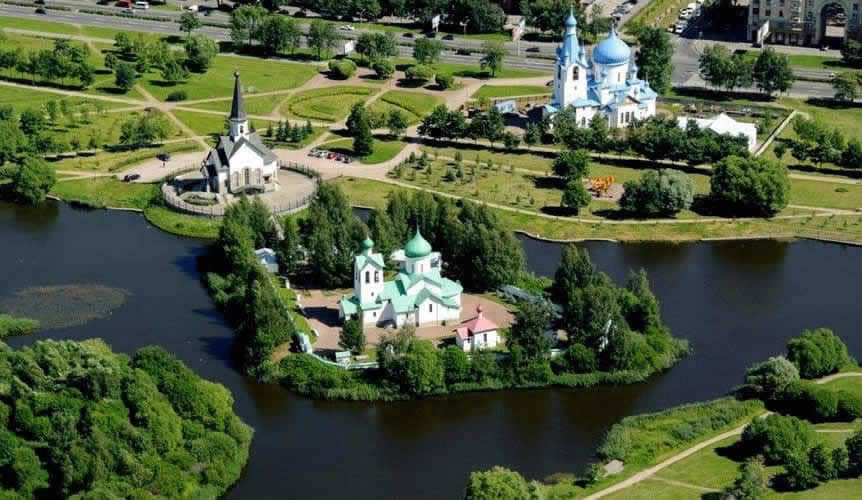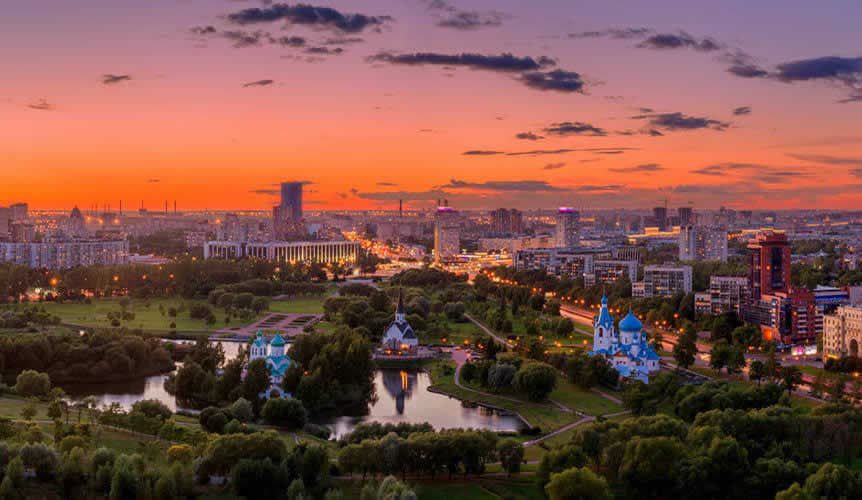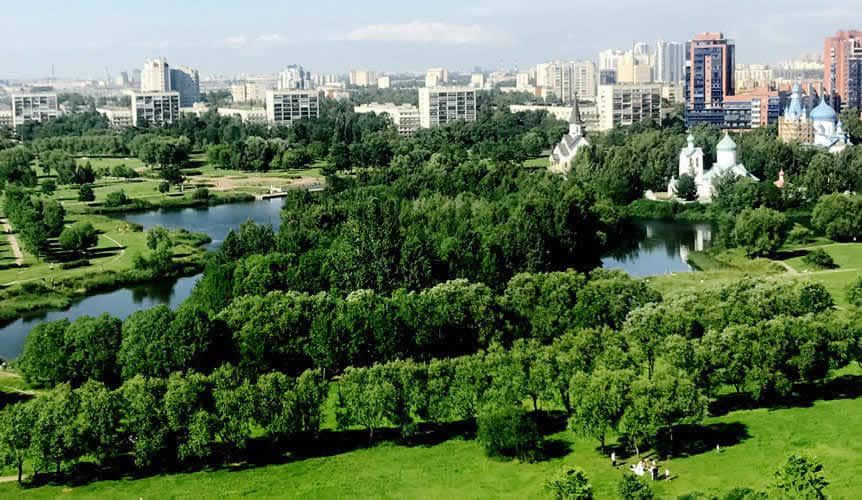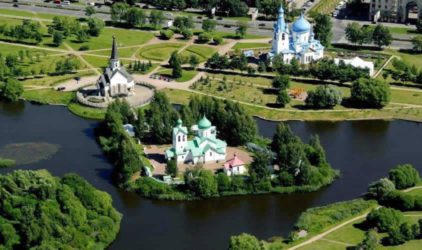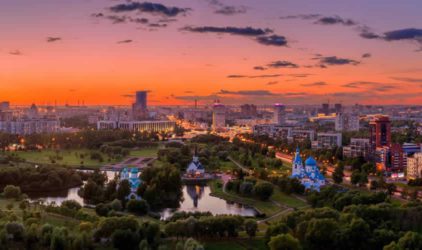When studying abroad, it can be complex to understand how every aspect of Russia came to be, especially given the backlash it often receives in global discussions. Communication between left-wing and right-wing advocates can portray different sides of Russia, but it’s better to observe the country from a more neutral or positive angle.
Choosing to study abroad can spark curiosity about learning a country’s cultural background, historical musicology, political outlooks, and global impact. Russia, despite the controversies and the media portrayal of its political climate, has a rich cultural history that offers profound educational opportunities for those willing to look beyond politics.
1. Russian Language and Music
A Cultural Exploration Beyond Politics. Music is a powerful part of every culture, and for 35,000 years, it has been a tool for uniting people from different parts of the world. It is capable of inspiring change and growth amongst countries. Russian culture, with its long history dating back to the 10th century, has greatly influenced modern music, art, and literature.
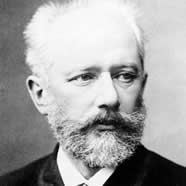
The danger, however, is that many people choose not to study Russian musicology or culture because of its political associations. Yet, this is a mistake. Politics are always changing globally, and every country, regardless of its politics, has something valuable to offer culturally.
It’s essential to approach Russia’s music, history, and traditions with an open mind, keeping in mind that its culture transcends the political discourse that often clouds global perceptions.
2. The Cultural and Musical Influence of Russia Beyond Political Views
The importance of studying Russian language and culture cannot be overstated. While political tension often can dominate the narrative about Russia, the country’s influence on global music, literature, and the arts remains undeniable. Russian composers, authors, and artists have shaped not only Russian society but also the broader global cultural landscape. From Tchaikovsky’s emotional symphonies to Dostoevsky’s psychological explorations, Russian cultural figures have left a lasting legacy that continues to impact contemporary creators around the world.
However, many students avoid engaging with Russian culture due to misconceptions about the country’s political stance. Russia’s cultural offerings such as its music, literature, and traditions are often misunderstood or ignored due to the oversimplified stereotypes that dominate the media as well as a lot of people’s opinions. As a result, many students overlook an educational destination that offers rich cultural exploration beyond political boundaries.
The media often portrays Russia in a negative light, which can discourage students from pursuing opportunities to study there. Yet, it is crucial to remember that a country’s culture cannot be defined solely by its political climate. In the case of Russia, its cultural heritage of the 1990’s to the present is a reflection of many years of artistic, intellectual, and social development far removed from the political dramas that often dominate the news. This heritage is not just Russia’s, but part of humanity’s collective legacy. As one source explains, “Then there is Russia’s cultural heritage part of ours that now suffers under the weight of state propaganda, censorship and lies.” Despite these challenges, Russia’s contributions to art, literature, and music remain essential to the global cultural conversation.
3. Global Impact of Russian Music on Artistic Expression
What cultural changes exert influence on the world? Getliner.com represented information on the influence that Russian music has/had on music composure. The article states “These composers have inspired generations of musicians and composers globally through their innovative techniques and emotional depth. Their works are frequently studied, performed, and reinterpreted, perpetuating a cycle of influence that continues to shape the musical landscape.”

The popular music that Russians have been listening to has been mentioned in the Russian Life article in 2020 According to data from Spotify’s users, the most popular genre of music is Russian rap, followed by foreign pop, Russian pop, Russian rock, and foreign rap.” (Godwin-Jones, Margaret. Spotify: Popular Music in Russia. Russian Life, RussianLife, 2019 )
4. Evaluating Study Abroad
The Untapped Cultural and Educational Potential of Russia. All aspects of this country could have individuals divided but it has shown significant benefits from other countries on a global scale. People should take a step back and realize that Russia is one of the most populated countries and has so much to offer for many students including foreign students. Russia has become recently popularized due to its influential take on the music and literature industry.
Why should people who look forward to studying abroad choose Russia? In my recent observations as someone who is considering studying abroad, I’ve noticed that students tend to choose these more popular options. According to the US News (The Best Countries to Study Abroad) a vast majority of students choose these top countries to study abroad 1. United States 2. United Kingdom 3.Spain 4.France 5.Italy.
Since these countries are so popular and deemed as more interesting , Russia is lacking attention .This is most likely because of public opinion on Russia’s politics and political alliance related content. I find some of the articles made about Russia to be exaggerated to the extent that these articles portray such a negative image that I feel should not be publicly encouraged, because ajor group of people lack true knowledge on the magnificent infrastructure of Russia. I’m sensing that more and more as I keep researching this topic. It is unfair to base an opinion about a country such as Russia on political views and the general stereotype that’s been portrayed poorly over the years.
These unfairly polarized views have affected a large number of people native to Russia because there are so many things shown by the media that affect the way outsiders see their culture. When deciding to study abroad one should go for cultural values and experience as well as other traditional values and learn the truthful ways of how the country works. When researching a country and trying to select a school to study abroad in, it is crucial to look into where the school is located and what culture is valued in that area and what is customary to not harm one’s self recognition by those around.
5. Exploring Russia’s Academic Appeal
A Hub for Arts and Cultural Studies Looking further into this topic of discussion can seem like a lot and difficult to completely comprehend, therefore I conducted research on why students choose to study in Russia. According to internationalstudentsinsurance.com Studying in Russia allows for students to study a wide variety of interesting subjects. Russia is a perfect destination for students interested in the arts, as Russia is historically known for its excellence in literature, ballet, painting, and classical music. As mentioned prior, Music and Literature is a big part of the historical background of Russia and it contributes to the interests and curiosities that a lot of individuals have.
Many students like myself chose this country to study abroad due to the impact the country of Russia has on the economy and historical values. . Economy Wise, Russia is seen to be a very complex topic for many people because of the many stereotypes and judgments others have portrayed. These media and political narratives are what made me want to learn more than what these Western institutional “role models” want me and others to believe. In a lot of cases, when students hear about the economic exploitations and falsifications of the country, it leads to tremendous misunderstandings about Russia’s culture, stats and background. This matter should be taken into more consideration due to the fact that Russia is a rapidly emerging country. In this article it states that “…in 2023, for instance, positioned Russia as one of the world’s fastest-growing major economies outside of India and China” (Sanctions Notwithstanding, Russia’s Economy Continues to Outperform.” International Banker, Oct, 2024).
6. Beyond Stereotypes: Elaborate Understandings of Russia’s Attributes
I interviewed an international student recruiter to understand a different perspective of my topic. This was her statement, “As for what makes people turn away from Russian culture, I don’t want to mention the current state of affairs in the world, but in my opinion, there was no such thing as someone turning away, there were only those who were simply not interested in it.
I think because language is complex, and learning a culture rather than language, people choose what is easier, studying the culture, losing the importance of the language. We also study the history of our country during 11 classes at schools and also a few years in universities, it is a very complex and long process. Russia was not created on its own, it was influenced by Europe and Asia too. Personally, I don’t like these stereotypes about vodka, bears and balalaika, these are the basics that people who have not studied Russia stop at. The most important thing for me is that even now we have many students who do not care about politics, they just do what they like, and we help them to do it, because the civilians of different countries have not done anything bad to each other.” – Ekaterina Kichko (interview, Nov. 2024)
As mentioned by Ekaterina, “Russia was not created on its own, it was influenced by Europe and Asia too.” I strongly agree with her statement. It was condemned by many countries and societies. The country has had countless cultural implementations by other slavic backgrounds and traditional influences but it was never really fully understood by other nations. ( “Russia does not just have East Slavic history but also was greatly influenced by Europe”) , as stated by (Gasparini, Evel. “Slavic Religion.” Encyclopædia Britannica,Apr. 2013)
As I reflect on the importance of considering Russian language studies while studying abroad, I’ve come to realize just how much my perspective has evolved. Initially, like many others, I was swayed by the negative portrayals of Russia in the media and the political narratives that dominate much of the global conversation. However, through deeper exploration, I’ve learned that Russia’s cultural and historical contributions go far beyond the political discourse that often shapes our understanding of the country.

When we consider Russian music, literature, and the arts, it’s impossible to ignore the lasting impact these cultural forms have had on the world. Composers like Tchaikovsky, Stravinsky, and Rachmaninoff revolutionized Western classical music, shaping emotional and technical foundations that continue to influence artists globally. Russian literature, from Tolstoy’s philosophical novels to Dostoevsky’s exploration of the human psyche, has also left an ineffable mark on intellectual thought worldwide. These achievements transcend political climates, offering a profound insight into human nature and societal issues. Yet, many people continue to dismiss Russia due to political tensions, often forgetting the immense cultural legacy the country offers.
However, Russia’s rich cultural heritage has, unfortunately, become overshadowed by more recent political narratives. As one source argues, “Then there is Russia’s cultural heritage part of ours that now suffers under the weight of state propaganda, censorship and lies.” It’s important to recognize that while political propaganda and state-driven narratives have distorted perceptions of Russia, they should not define the nation’s culture. Russia’s music, art, and literature are not products of the political climate; they are expressions of the human experience that transcend any particular era or regime.
By studying abroad in Russia, students have the opportunity to engage with this complex cultural heritage firsthand. Despite the negative stereotypes and misconceptions that often circulate in Western media, Russia offers an enriching educational experience, particularly in the fields of music, literature, history, and the arts. Russian universities are known for their academic rigor, and the country itself provides a vibrant and dynamic environment for students looking to immerse themselves in a unique cultural landscape. In a world where many study abroad programs are concentrated in Western Europe or North America, Russia offers an alternative that is often overlooked, yet immensely rewarding.

As students, we should strive to look beyond the political noise and engage with Russia’s true cultural identity. By doing so, we not only expand our own horizons but also contribute to a broader, more nuanced understanding of a nation that has much more to offer than what is often portrayed in the media.
Russia’s cultural heritage, shaped by centuries of artistic and intellectual achievement, deserves to be explored and appreciated for the powerful legacy it continues to provide. Understanding this legacy and engaging with it through language and academic pursuits will allow us to build deeper, more empathetic connections with the Russian people and ultimately help us see the country as a multifaceted and valuable contributor to global culture. In the end, the true spirit of Russia cannot be fully captured through political headlines or simplified stereotypes it lies in the music, literature, and traditions that have influenced generations and will continue to inspire the world for centuries to come.
Read also: Slavic Core – cultural trend



